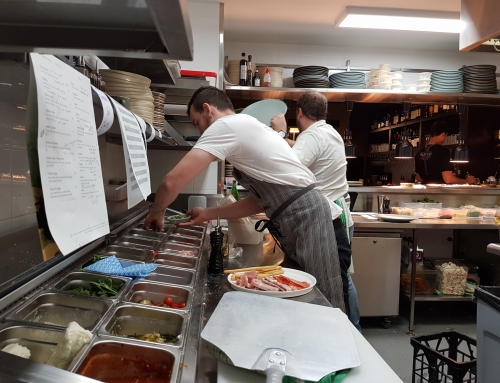Most food business operators will lease the premises required to run their business. Those that have managed to buy real estate and be their own landlord have a valuable asset to give themselves security into the future.
However, there will come a time when you will need to sell the real estate to move onto other things.
On the 1st of July 2017 the good people at the ATO introduced a new ruling that must be applied when you buy or sell any real estate.
The changes mean that Australian residents selling real estate with a market value of $750,000 or more will need to apply for a “clearance certificate” from the ATO to ensure (tax) amounts are not withheld from the sales proceeds.
If you don’t obtain the clearance certificate well before settlement, the purchaser of your property is required to withhold 12.5% of the purchase price and forward it to the ATO. This applies to commercial and residential properties. Sounds a bit unfair doesn’t it?
Not really. This ruling has always been in place but was only applicable to properties over $2mil in value. Now that the threshold is lowered to $750,000, more transactions will be affected. The ruling was originally designed to capture tax payable by non- residents of Australia. I assume that the ATO want to tighten the net of transactions involving non-residents.
If you don’t obtain a clearance certificate and the 12.5% is paid to the ATO by the purchaser, the seller/vendor is able to claim this as a credit when they lodge their income tax return for that year. Note, the seller/vendor must also provide their tax file number to the purchaser to have this credit available on lodging the return – a situation to be avoided.
Both sellers and purchasers need to be aware of their obligations under this legislation:
- It is the obligation of the purchaser to withhold the 12.5% of the purchase price and remit it to the ATO.
- It is the obligation of the seller to provide the clearance certificate to avoid the withholding.
Don’t panic! The process to apply for a clearance certificate is relatively simple – I’ve had to do it for myself recently. However any skilled accountant or lawyer can take care of this as part of the settlement process.
Just make sure you get your documents sorted out well in advance of the settlement date to avoid any lead time issues and risk paying the tax at settlement. If you have any questions, feel free to contact us.
Mise en place
Christine Green – Restaurant Bookkeepers Australia






